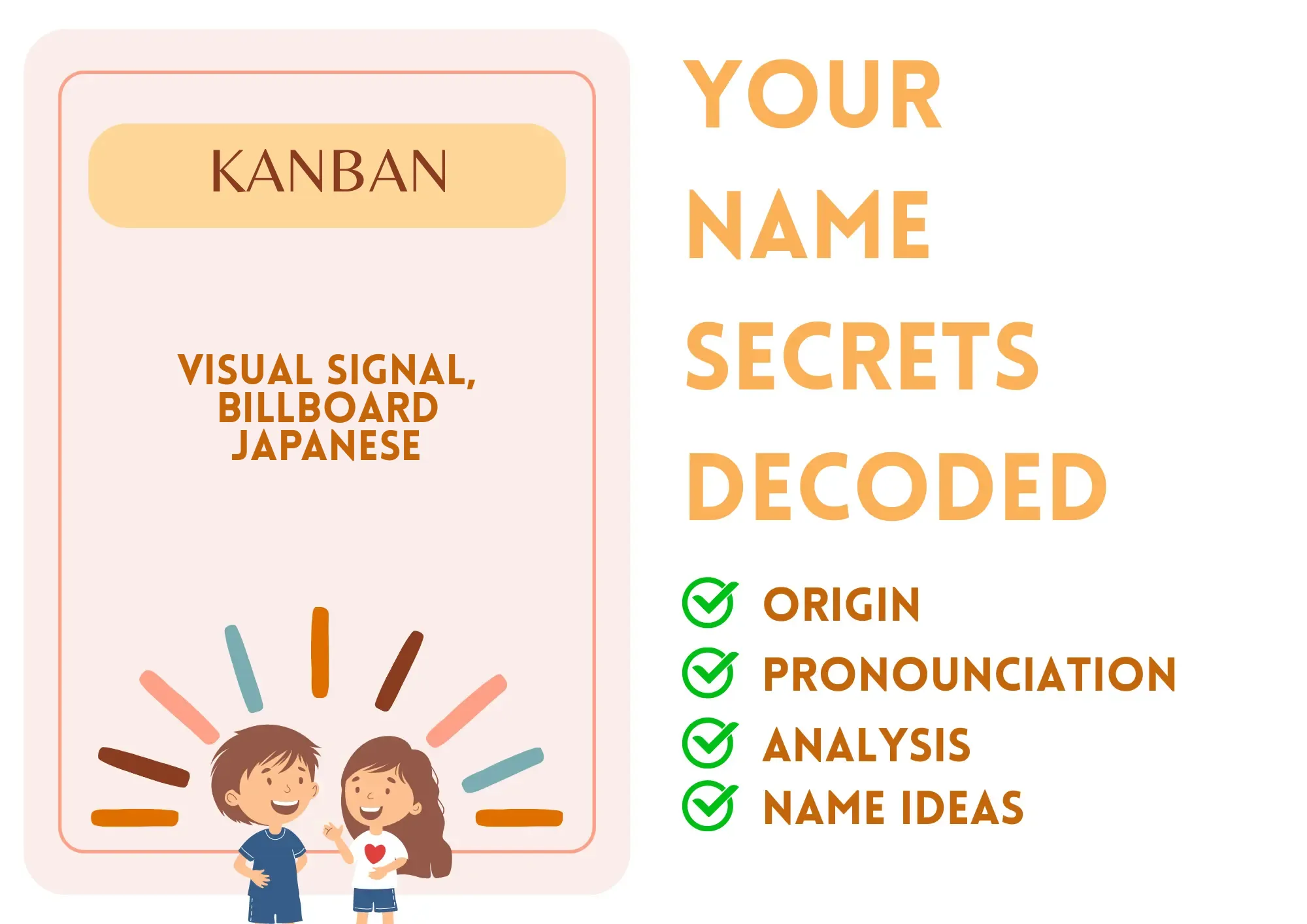
Kanban
Kanban is a name that originates from the Japanese language, meaning 'visual signal' or 'billboard.' Though primarily associated with a project management methodology in business and software development, it has gained traction as a unique given name, particularly among those appreciating its innovative and structured connotation. Kanban does not have a traditionally recognized gender association, making it suitable for unisex usage.
The culture surrounding Kanban is deeply rooted in Japanese efficiency and organization, reflecting the principles of simplicity and clear communication. It represents a systematic way to improve workflow and productivity, showcasing a modern lifestyle focus.
The name Kanban is increasingly popular among those who resonate with its meaning and its association with creativity and problem-solving. It is relatively straightforward to write and pronounce, giving it an approachable quality.
Basic Information
Gender: Unisex
Sounds Like: KAHN-bahn
Pronunciation Explanation: The first syllable is stressed, pronounced 'KAHN', and the second syllable is pronounced like 'bahn'.
Summary and Meaning
Meaning: visual signal, billboard (Japanese)
Origin: Japanese
Usage: Kanban is unisex and can be used for individuals of any gender.
Name Number (Chaldean)
Name Number (Pythagorean)
Popularity (Global Rank)
Overall: 289989
Boys: 72681
Girls:
Most Popular in
Religious and Cultural Significance
Religion: Buddhism
Background: Kanban is associated with a culture that values efficiency, simplicity, and organization, often intertwining with Buddhist principles of mindfulness and awareness.
Cultural Significance: The name signifies a modern approach to work and life, appealing to creative and innovative individuals who value structure.
Historical Significance: Kanban's historical significance stems from its development in the Toyota Production System as a method to manage work and optimize efficiency, although it does not have a prominent role in cultural folklore.
Popular Culture
Literature and Mythology: While Kanban may not appear directly in traditional literature, its principles resonate throughout modern business literature and management practices.
Movies and Television: The term has been referenced in documentaries and educational programming that discuss business processes and productivity, but it does not associate with specific characters or narratives in mainstream media.
Feelings and Perceptions
Perception: The name Kanban is viewed positively, associated with modernity, organization, and practical innovation. It stands out in a crowd, appealing to a creative, forward-thinking mindset.
Positive Feelings: Creative, innovative, structured, unique, efficient.
Negative Feelings: Some may find it unconventional or difficult to relate to as a personal name.
Practical Considerations
Ease of Writing and Calling: Kanban is easy to write and pronounce, consisting of six letters and two syllables which makes it memorable and clear.
Common Typos and Misspellings: Kanbanne,Kamban,Kanbanh,Kaanban
Common Nicknames: Kan,Kani,Ban
Kanban Popularity
Kanban Usage and Popularity By Country
| Country | Rank (Overall) |
|---|---|
| Tanzania | 18317 |
| Hungary | 19137 |
| Spain | 40008 |
| Turkey | 44234 |
| India | 91763 |
| Brazil | 121715 |
| United States | 344452 |
Kanban Usage and Popularity By City
| City | Rank (Overall) |
|---|---|
| Chennai | 18943 |
| Sabara | 499 |
Compatibility Analysis
Famous Persons Named Kanban
No results found for Kanban.
Related Names
Similar Sounding Names:
Kamal,Kiran,Kanan,Kanoa
Similar Meaning and Related Names:
Sibling Name Ideas (Brothers):
Ren ♀️
Buddhist, Shinto (Japanese), Confucian (Korean)